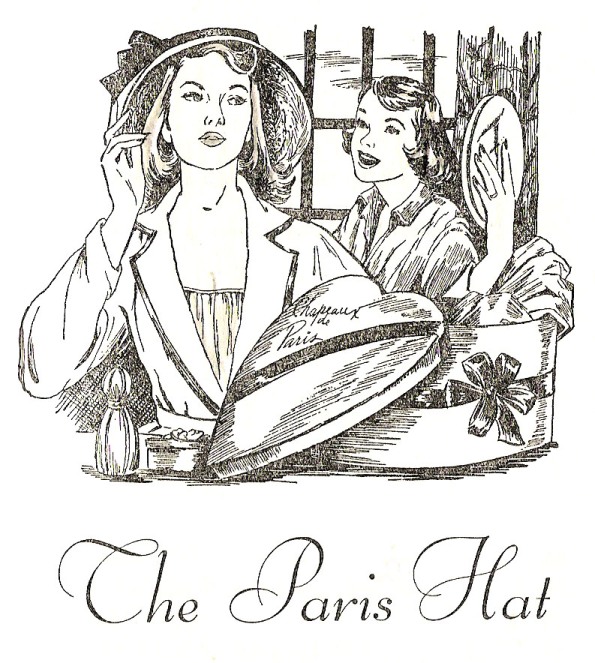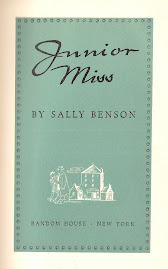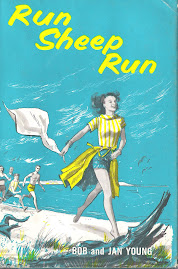 Title: I, Judy
Title: I, JudyAuthor: Eve Bennett
Publisher: Julian Messner, 1957
Setting: Outdoorsy Denver
Fun: Aspen before the celebrities ruined it; singing folk songs; dressing up as the Unsinkable Molly Brown
Quote:
"Ever since she had been a bit of a girl and had dreamed up stories and believed in fairies, and had read every moment she was allowed, Judy had meant to be a writer."
A lot of teen novels don't deal very directly with romance. Sure, there's a steady boy somewhere in a background subplot, but he's the kind of boy only a matronly novelist would designate as the hero -- handsome but not arrogant about it, even-tempered, full of common sense and possessed of a one-syllable name like Bill, Joe or Walt. Of course there's a very good reason for keeping boys out of books that are mainly designed to help girls sort out growing up. Boys are a distraction. They lead to bad decision-making. Therefore the easiest hero to have is an understanding one who stays entirely in the background except for the moment he asks the heroine to the Spring Formal.
Give some credit, then, to I, Judy, for focusing a plot on what to do when you have a bad boyfriend. Judy is an unusual heroine -- skinny and neurotic. She's a latchkey kid (her father's dead and her mother supports the family) who in the first chapter is elected to the school newspaper and receives a poison pen letter insulting her sloppy appearance. On a trip to Aspen as a reporter she meets Riley, a passive-aggressive rich kid. Danger appears when Riley invites her to his house when his parents aren't home and plays his favorite classical records, all of which, Judy notes, seem to have the word "death" in the title. Riley tells her listening to them makes him feel:
"As if I'm standing apart, 'way above everything. As though I can see clearly all the little things, the little people. I'm above them and they don't matter. I'm sorry for them and their little crawling insignificant lives -- but they don't really matter. There are the stars and the sun and the moon and storms all about me -- the lightning and the thunder and all the elements -- I love it! I feel like God!"
At which point Judy suddenly remembers she has some homework she's forgotten to do.
Judy finds her voice writing for the school paper, makes some more friends and begins to see her mother as a human being, but through it all Riley hangs around, throwing tantrums, not calling and playing the neglected-rich-kid card at every opportunity. Judy doesn't quite get rid of him because she recognizes that she shares some of his emotional peculiarities. However, because this is a teen novel, I, Judy does not end with a double suicide to the strains of Die Walkure. Instead a deus ex machina sends Riley to military school. (Love of Wagner plus military school. Great combination.) With him goes the last touch of realism in the novel, for in the final chapter Judy is awarded a college scholarship, gets a part-time job writing for an actual newspaper and has at least two potential new boyfriends, one of whom says "It's OK if you can't cook, because I can."
I suppose it's unfair to quibble about the happy ending. Judy sort of deserves it, after Riley. And I, Judy does a good job of walking that line between benign entertainment and something a little deeper.












